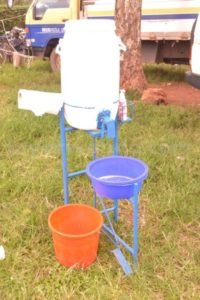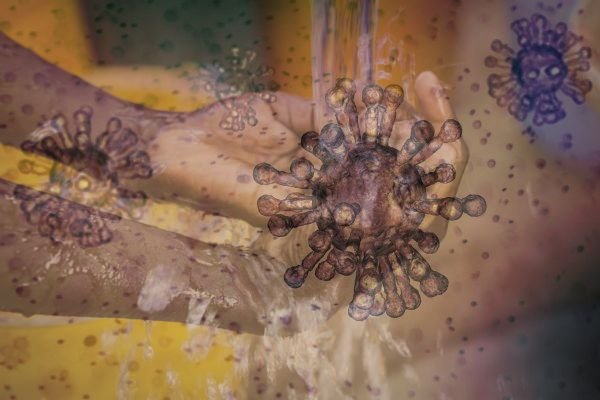As the coronavirus crisis spreads throughout the world, it is increasingly clear that people with the least access to essential services like water will feel the most dramatic effects. Major health organizations advise washing hands more frequently – for at least 20 seconds – to prevent outbreaks.
Yet 3 billion people, 40% of the world’s population, lack access to basic hand-washing facilities in their homes. And that’s only part of the problem. Nearly a billion people experience only partial access or regular shutoffs even when they do have piped water, making frequent hand-washing difficult or impossible.
Organizations like WHO, UNICEF, UN-Water and Red Cross and Red Crescent are ramping up assistance to increase access to basic amenities. There are some examples from other disease outbreaks, such as Ebola in areas of Africa, that could provide immediate strategies.

For example, one effective approach uses simple two-bucket hand-washing stations, one with a spigot and a mix of water and chlorine to kill viruses and other pathogens, and another bucket below it to capture the used water. UN agencies, local governments and even private companies are building drinking and hand-washing facilities in informal settlements, public places and high-traffic areas.
The problem is particularly difficult for the more than 1 billion people living in slums or informal settlements, where overcrowding and low water access can fuel COVID-19’s spread.
A UN-Habitat-led network of small-scale sanitation service providers, utilities and authorities is offering technical advice, online training and information-sharing on responding to COVID-19. The agency is also engaging community leaders and existing slum networks in trainings, managing hand-washing facilities and disseminating information about the disease.
What’s also needed to foster resilience to disease outbreaks and other disasters is better water management. This might sound impossible, but recent WRI research found that by spending just over 1% of global GDP – around 29 cents per person per day from 2015-2030 – the world could provide water security for all by 2030.
These investments more than pay for themselves: Research shows that every dollar invested in sanitation services yields $6.80 in benefits. Just as world stands united today it will have to do the same for issues like Climate Change, Water Management etc. if we as species want to live and flourish.
Reference- WRI Report, CNBC, UN website, Unicef






